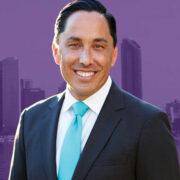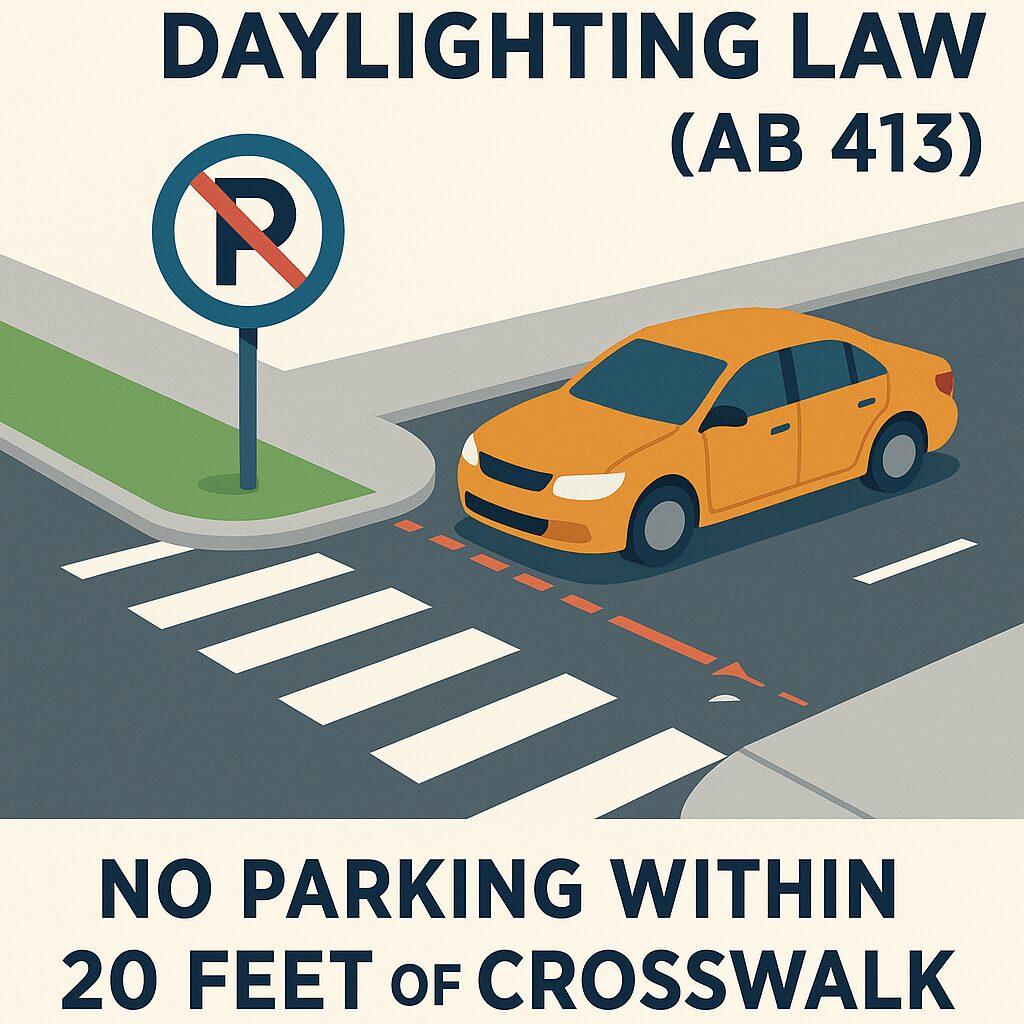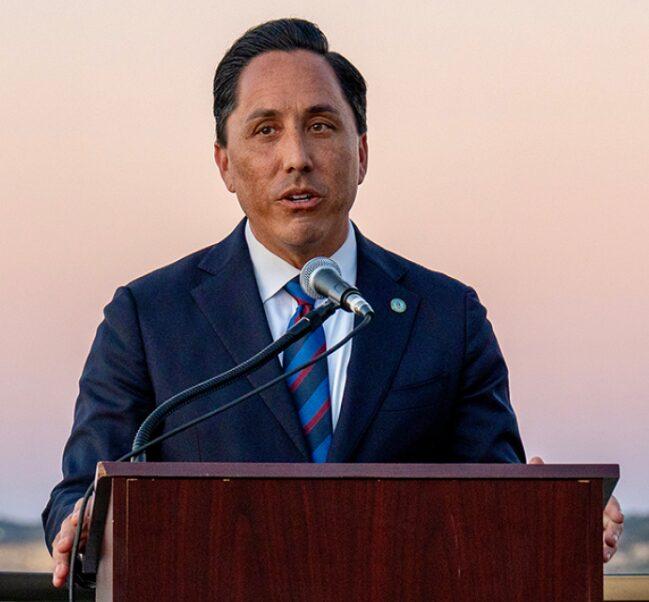Cities have used state funds to serve 150,000 unhoused residents and create more than 15,000 shelter beds
SACRAMENTO – A bipartisan coalition of mayors from the state’s 13 largest cities on Tuesday, April 23 visited the State Capitol to urge on Gov. Gavin Newsom and the state Legislature to make permanent its foremost program to fund homelessness services across California.
The Big City Mayors coalition, chaired by San Diego Mayor Todd Gloria, stood united in requesting that state leaders not only avoid making cuts to the Homelessness Housing, Assistance and Prevention (HHAP) program, but also to commit to funding it on an ongoing basis.
“The shelters and service programs that big cities up and down California have created with local and state dollars are getting people off the street and connected to care. We need to protect the progress we’ve made through continued state investment,” said San Diego Mayor Todd Gloria. “We have shown urgency in putting state funding to work to increase emergency shelter, bring people indoors and put them on a path to permanent housing. We can build on this success, but cities need the certainty that a commitment to ongoing state funding will bring.”
The Big City Mayors also urged state leaders to restore cuts to the Regional Early Action Planning 2.0 (REAP 2.0) grants, which provide state funding to local governments to update plans and create tens of thousands of new housing opportunities to tackle California’s housing-affordability crisis.
Other priorities highlighted by the mayors during their day of advocacy in Sacramento included continued investment in the California Youth Service Corps program, which provides thousands of jobs and service opportunities to young people, as well as a call for meaningful action to address retail theft.
Since 2018, the State of California has provided direct grants to large cities, counties and continuums of care – such as the San Diego Regional Task Force on Homelessness – for homelessness programs on a one-time basis through HHAP, as well as the Homelessness Emergency Assistance Program (HEAP) program that preceded HHAP. The state is currently facing a significant budget deficit and recently approved an early-action plan that reduced the budget shortfall by $17 billion. That plan had minimal impacts to housing and homeless programs, but the current proposed budget does not currently include an additional round of HHAP funding.
The mayors argued that continued HHAP funding is necessary to sustain the temporary and permanent housing programs that seek to reduce unsheltered homelessness. HHAP dollars also complement recent state behavioral health reforms that are helping to address the crisis.
The Big City Mayors successfully advocated for the passage of the CARE Act, passed in 2022, and conservatorship reform, passed in 2023, as well as Proposition 1, which voters approved in March. Under Prop. 1, counties must prioritize mental health dollars for placing people experiencing homeless who have untreated behavioral health needs into housing.
The mayors are asking state leaders to approve an additional year of HHAP Round 6 funding at no less than $1 billion a year and make the program ongoing, which would allow the state and local governments to better plan their long-term approach on homelessness, more efficiently fund programs and ensure accountability for progress on reducing homelessness.
Embracing the need for accountability on homeless funding, the coalition released a report detailing the number of new shelter beds and interim homes that cities have added with these funds, including:
- 15,722 new emergency shelter beds and interim homes created
- 149,851 people served
- 42,215 people placed into a housing intervention.
The HHAP report can be found at https://www.sandiego.gov/sites/default/files/2024-04/2024-big-city-mayors-report.pdf.
(City of San Diego Release) n






